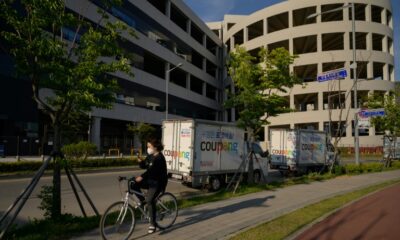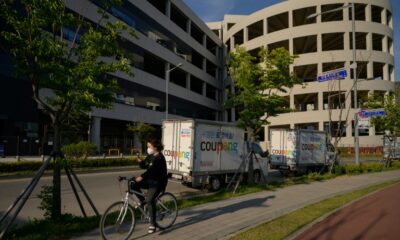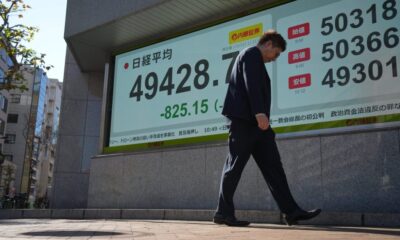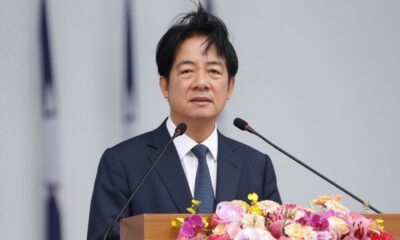Top Stories
South Korea’s BOK Governor Rhee Flags Urgent Trade and Growth Risks

UPDATE: South Korea’s economic outlook faces critical challenges as Bank of Korea (BOK) Governor Rhee Chang Yong warns of significant trade and growth risks just days ahead of a key policy meeting on August 28. Speaking at a parliamentary committee on Tuesday, Rhee pointed to uncertainties stemming from ongoing US trade negotiations with major economies, particularly highlighting the precarious situation with China.
Authorities are poised to address whether to resume their monetary easing cycle amid these concerns. Rhee emphasized that the decision will hinge on a multitude of factors, including rising delinquency rates among small businesses and regional developers, which threaten financial stability.
In his remarks, Rhee noted that while housing debt growth has moderated following recent government-imposed caps on mortgage loans, property prices in some areas of Seoul remain uncomfortably high.
“Internal and external uncertainties remain elevated,” Rhee stated, urging the need for close monitoring of economic conditions, inflation, and financial stability before any policy adjustments are made. This statement resonates with economists, who are divided on whether the BOK will extend its easing cycle or maintain the current interest rate of 2.5%.
Despite the cautious tone, Rhee expressed optimism for continued economic momentum in the second half of 2023, bolstered by a supplementary budget. However, he warned that risks related to tariff negotiations with Washington could create additional headwinds for growth.
Inflation remains a pressing concern, especially with potential rises in food costs due to adverse weather conditions. Nevertheless, stable energy prices may help keep inflation close to the BOK’s target of 2%.
On the currency front, Rhee highlighted the significant fluctuations of the South Korean won against the US dollar, which has seen swings in the mid-$1,300 range, reflecting ongoing volatility in foreign-exchange markets.
As the BOK prepares for its upcoming meeting, all eyes will be on how these critical factors will influence its policy direction. The decisions made in the coming days could have profound implications for South Korea’s economic landscape.
Stay tuned for further updates as the situation develops.
-

 Politics4 weeks ago
Politics4 weeks agoSecwepemc First Nation Seeks Aboriginal Title Over Kamloops Area
-

 World5 months ago
World5 months agoScientists Unearth Ancient Antarctic Ice to Unlock Climate Secrets
-

 Entertainment5 months ago
Entertainment5 months agoTrump and McCormick to Announce $70 Billion Energy Investments
-

 Science5 months ago
Science5 months agoFour Astronauts Return to Earth After International Space Station Mission
-

 Lifestyle5 months ago
Lifestyle5 months agoTransLink Launches Food Truck Program to Boost Revenue in Vancouver
-

 Technology3 months ago
Technology3 months agoApple Notes Enhances Functionality with Markdown Support in macOS 26
-

 Lifestyle3 months ago
Lifestyle3 months agoManitoba’s Burger Champion Shines Again Amid Dining Innovations
-

 Top Stories2 months ago
Top Stories2 months agoUrgent Update: Fatal Crash on Highway 99 Claims Life of Pitt Meadows Man
-

 Politics4 months ago
Politics4 months agoUkrainian Tennis Star Elina Svitolina Faces Death Threats Online
-

 Sports5 months ago
Sports5 months agoSearch Underway for Missing Hunter Amid Hokkaido Bear Emergency
-

 Politics5 months ago
Politics5 months agoCarney Engages First Nations Leaders at Development Law Summit
-

 Technology5 months ago
Technology5 months agoFrosthaven Launches Early Access on July 31, 2025





















